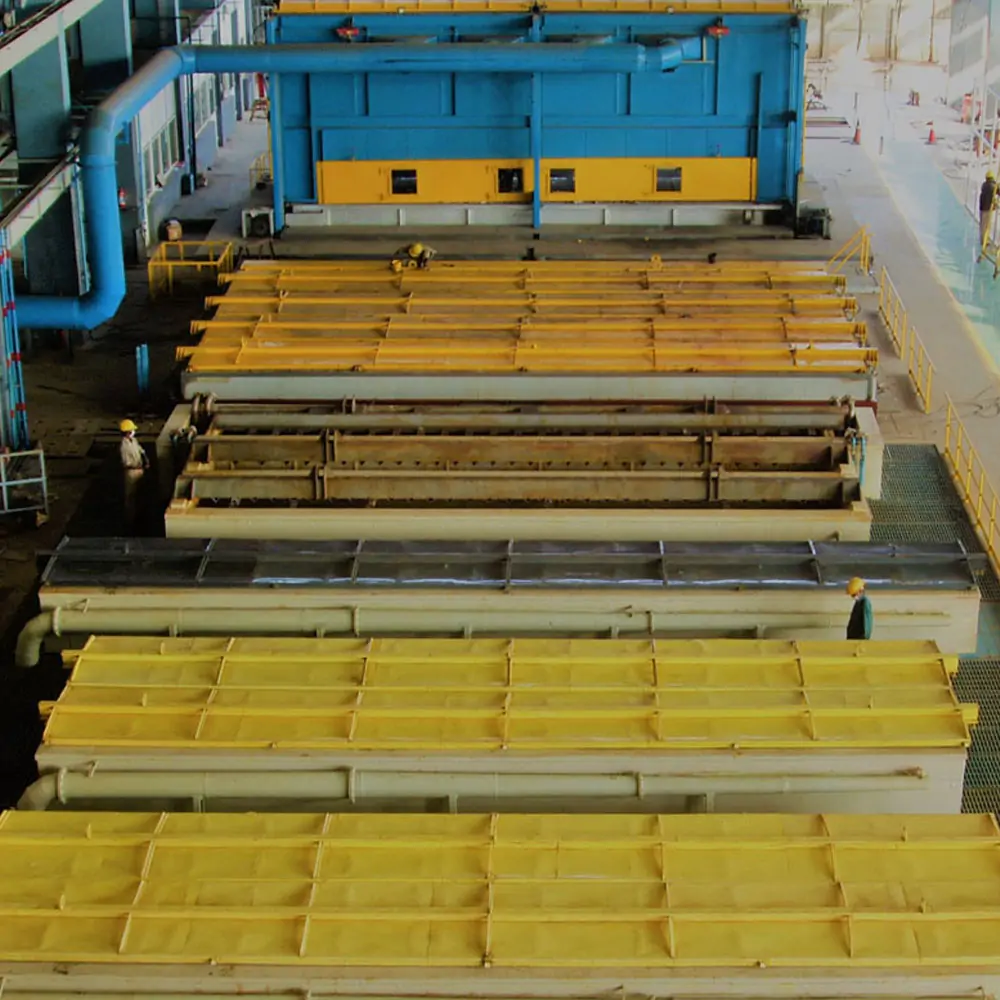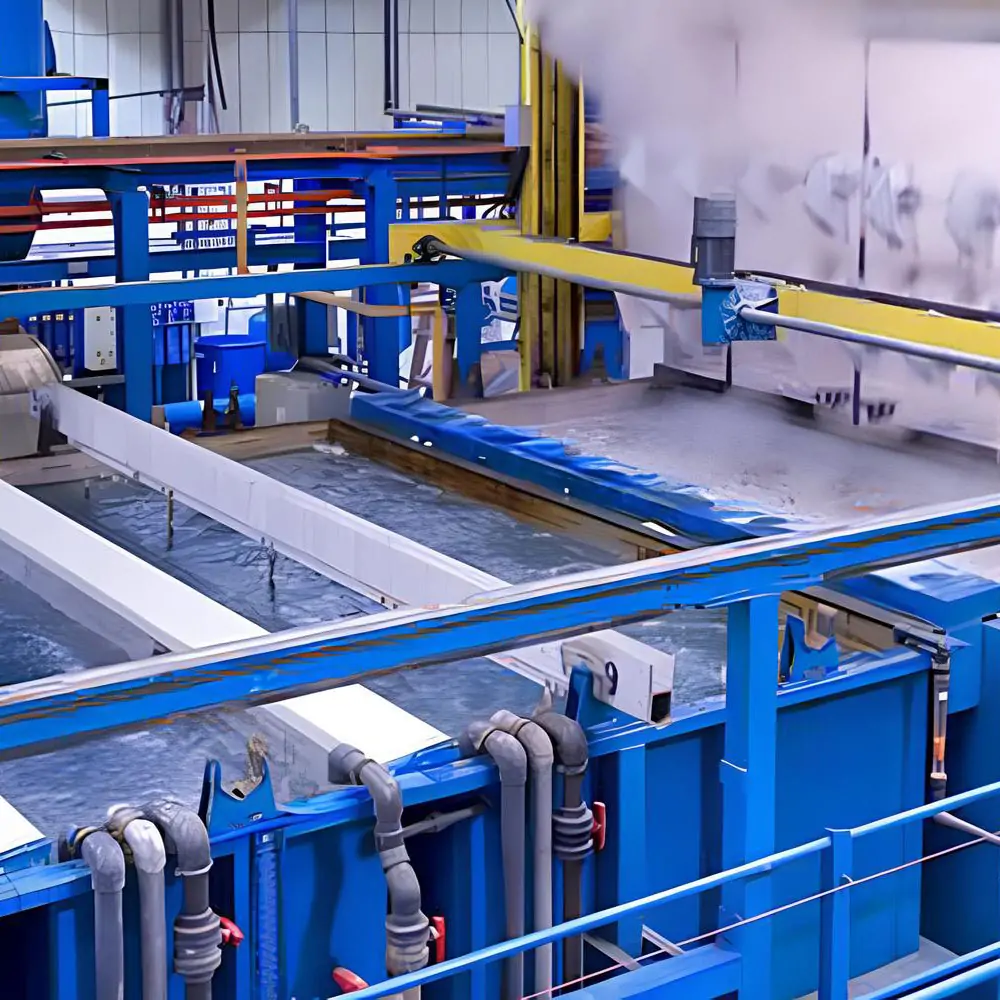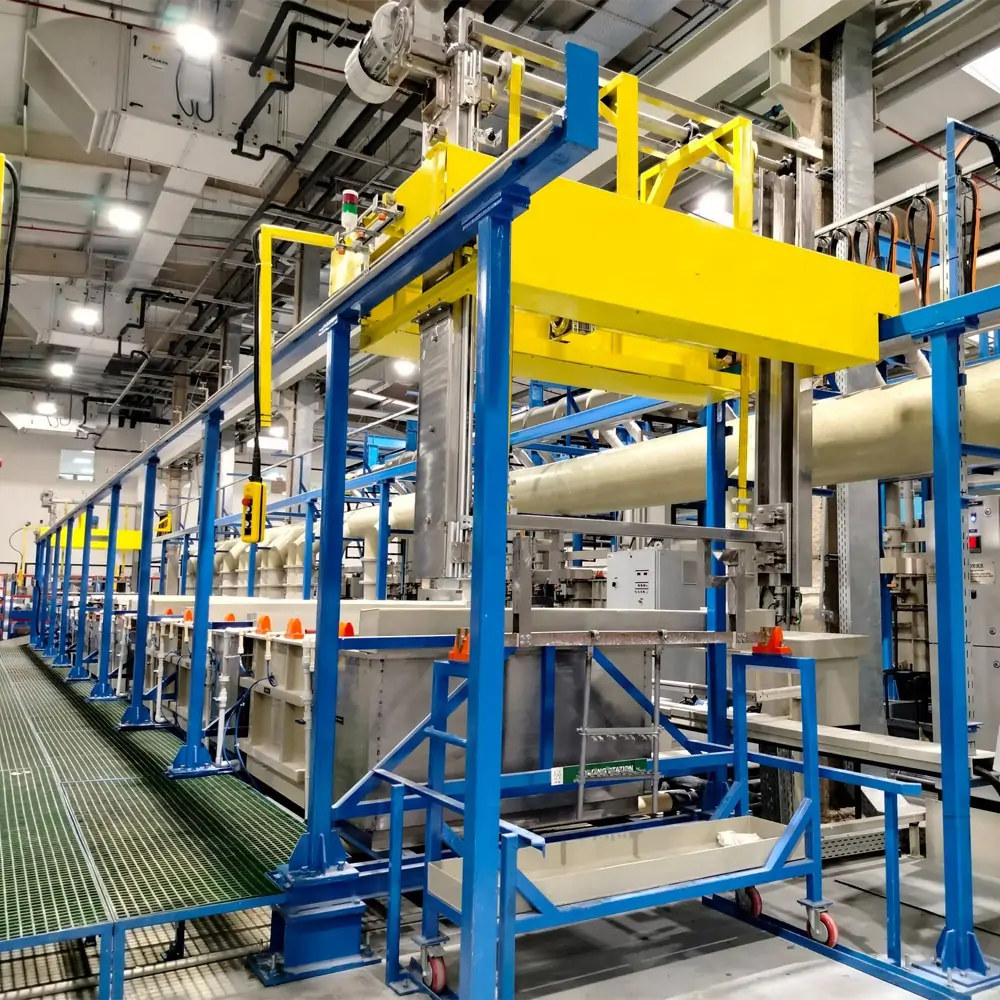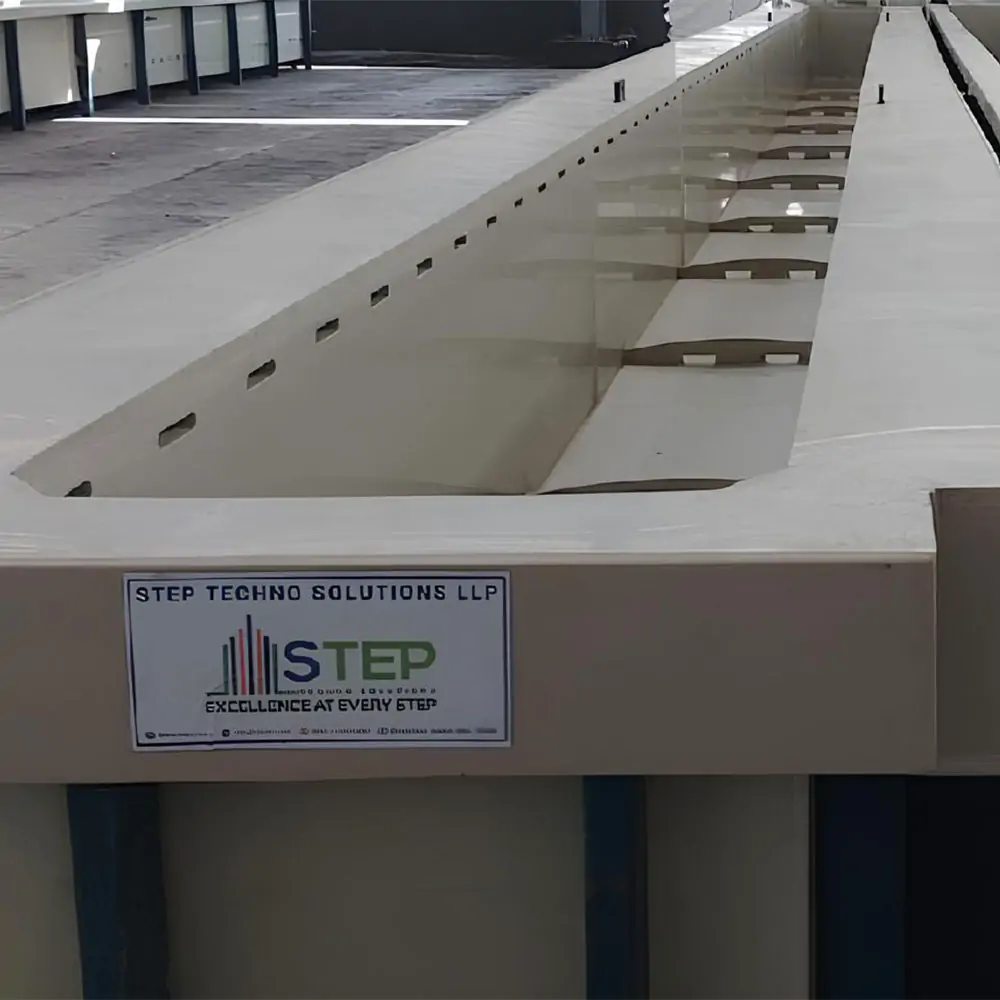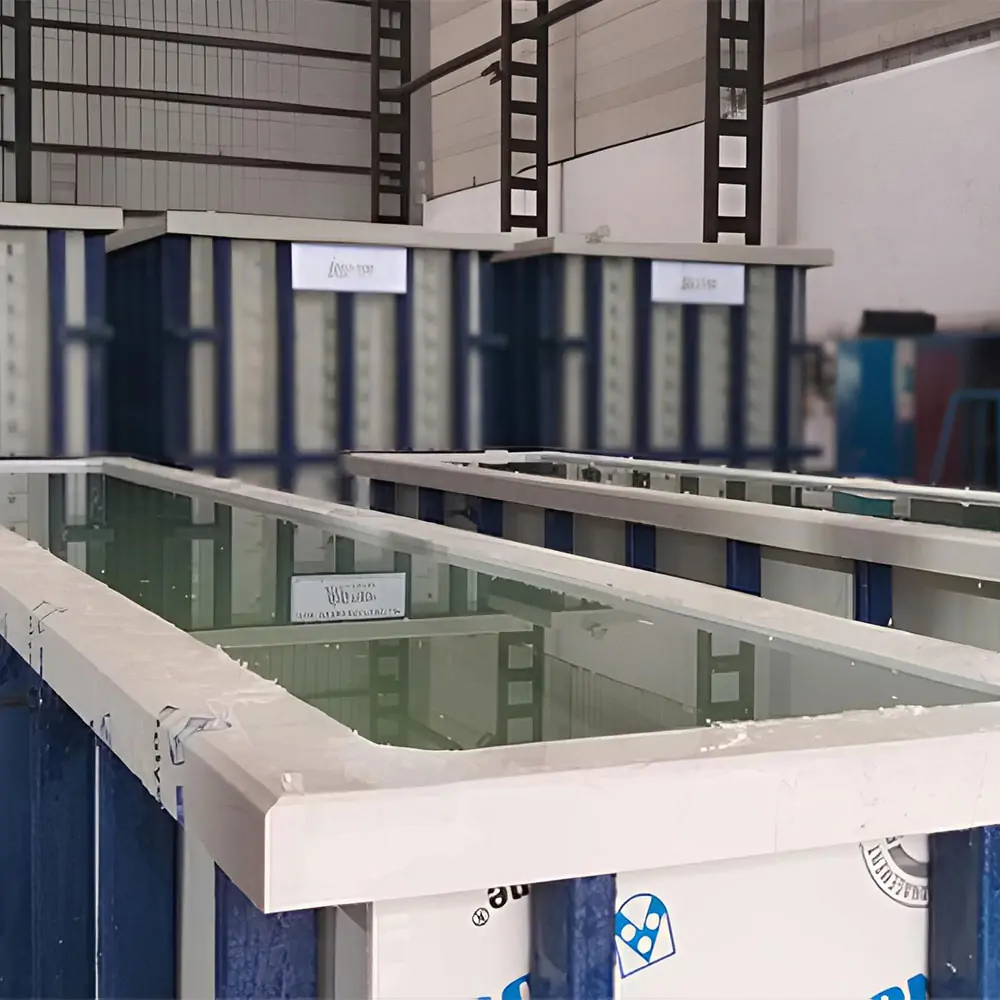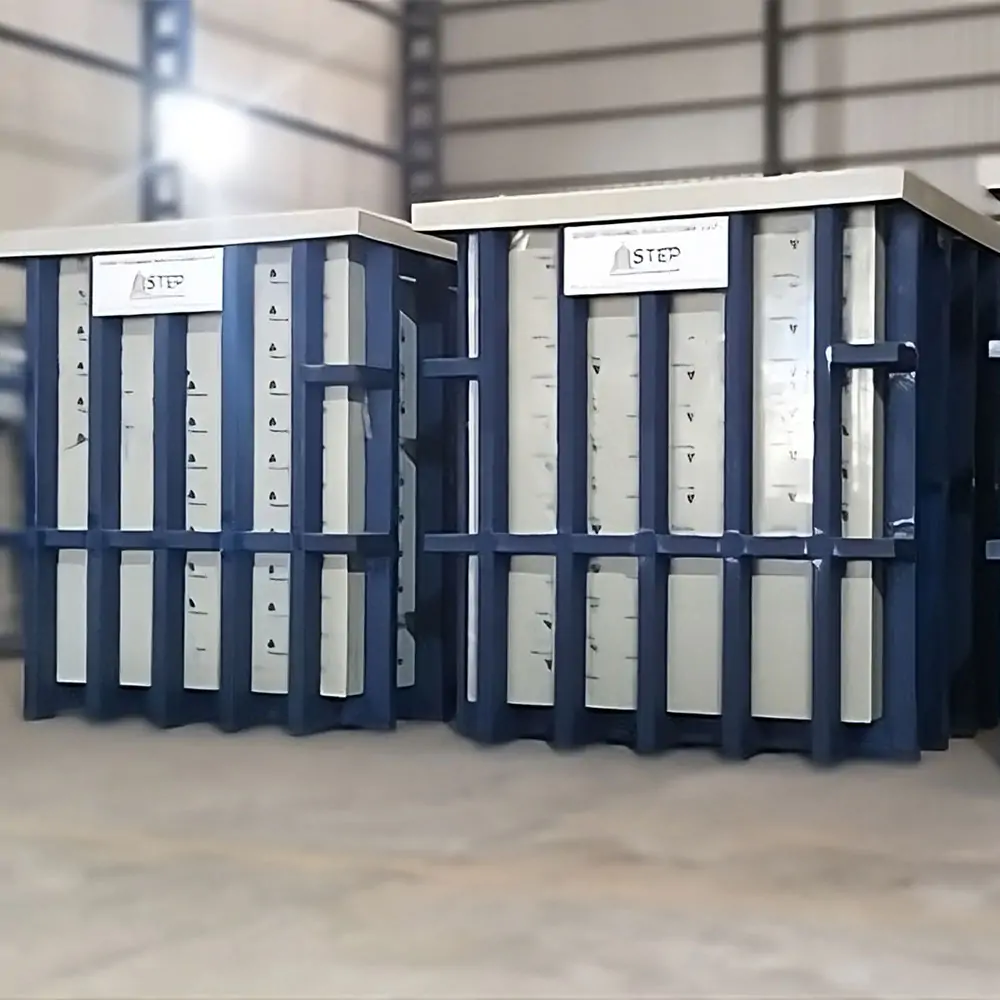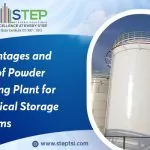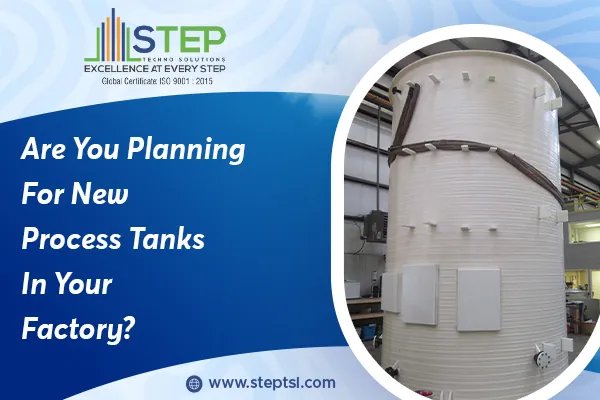Process tanks are vital components in surface treatment and chemical processing industries. Whether it’s for cleaning, electroplating, anodizing, or finishing, these tanks ensure smooth operations, consistent product quality, and efficient production cycles. If you’re considering upgrading or installing new process tanks in your factory, it’s important to choose the right type based on your application needs. Modern process tanks are available in materials like Polypropylene (PP), HDPE, and FRP, offering high chemical resistance, durability, and ease of maintenance. Investing in high-quality tanks enhances safety, reduces downtime, and ensures long-term cost savings.
Before purchasing, consider factors such as tank material, size, chemical compatibility, temperature resistance, and overall installation space. Selecting a trusted manufacturer of process tanks in India ensures you receive expert guidance, quality products, and reliable after-sales service. A well-chosen process tank is not just an asset — it’s a smart move for better production efficiency.
The Importance of Process Tanks in Surface Treatment Applications
Surface treatment involves modifying the surface of materials to improve their appearance, durability, and resistance to corrosion, chemicals, and wear. Process tanks are at the heart of these applications. They hold and manage the liquids or solutions required for cleaning, coating, plating, and treating different types of components and materials.
Without high-quality process tanks, surface treatment operations can suffer from poor consistency, increased waste, and reduced productivity. Investing in reliable and efficient process tanks ensures smoother workflows and better-quality finishes, ultimately supporting the overall production goals of your factory.
Benefits of Using Process Tanks in Industries
Process tanks provide several valuable benefits that contribute to the success and sustainability of industrial operations:
- Controlled Treatment Environment: Ensures precise chemical reactions and coating processes.
- Consistent Quality Output: Maintains uniformity across batches and enhances surface properties.
- Operational Efficiency: Speeds up the treatment process and minimizes downtime.
- Safety and Compliance: Reduces chemical exposure risks and supports environmental regulations.
Types of Process Tanks
Depending on the surface treatment application and the type of material being treated, different kinds of process tanks are used. The most common types include:
Chemical Process Tanks
These tanks are designed to hold corrosive chemicals used in processes such as cleaning, etching, and degreasing. They are made from materials like polypropylene, PVC, or stainless steel that are resistant to harsh chemicals. Chemical process tanks are widely used in chemical manufacturing, electronics, pharmaceuticals, and food industries.
Plating Process Tanks
Plating tanks are essential for electroplating processes where metals like nickel, zinc, chromium, or gold are deposited on the surface of a component. These tanks are typically equipped with rectifiers, heaters, and agitation systems to ensure consistent metal deposition. Properly designed plating tanks help achieve smooth, corrosion-resistant finishes on metal parts.
Anodizing Process Tanks
Anodizing tanks are used primarily in the treatment of aluminum components. These tanks create an oxide layer on aluminum surfaces to improve corrosion resistance, enhance wear resistance, and allow for dyeing in various colors. Anodizing tanks are usually made from chemically resistant materials and can include temperature control and agitation mechanisms for uniform treatment.
Benefits of Using Process Tanks
- Improved Efficiency in Surface Treatment Processes: Process tanks are designed to handle high volumes of treatment liquids with precise control over temperature, agitation, and chemical concentration. This leads to faster and more reliable treatment cycles, boosting the efficiency of your operations.
- Enhanced Quality of Finished Products: Well-maintained and properly designed tanks ensure that every component receives uniform treatment. This consistency translates into higher-quality products with smoother finishes, better adhesion, and improved durability.
- Reduction in Material Waste and Cost Savings: By optimizing the use of chemicals and minimizing rework, process tanks help reduce material waste. Efficient treatment also reduces the need for excessive chemical replenishment, leading to significant cost savings over time.
- Compliance with Environmental Regulations: Many surface treatment processes involve hazardous chemicals that must be handled responsibly. Modern process tanks are equipped with systems that reduce emissions, manage waste, and ensure safe chemical storage and disposal, helping you comply with local and national environmental regulations.
- Increased Safety for Workers: Properly designed tanks reduce the risk of spills, leaks, and exposure to harmful substances. Features like splash guards, proper ventilation, and automated controls create a safer working environment for employees handling surface treatments.
Factors to Consider When Planning for New Process Tanks in India
If you’re considering adding or replacing process tanks in your facility, several key factors should guide your decision:
Capacity Requirements
Determine the volume of liquid or the number of parts to be processed in each cycle. This will help you select a tank size that supports your production capacity without causing delays or inefficiencies.
Material Compatibility
Choose tank materials that are compatible with the chemicals or solutions used in your processes. For example, polypropylene and PVDF are ideal for strong acids, while stainless steel suits less corrosive environments.
Heating and Cooling Options
Some surface treatments require specific temperature ranges. Make sure your process tanks can be equipped with heaters, coolers, or temperature control systems to maintain optimal process conditions.
Space Constraints
Consider the space available in your facility before selecting the tank design and dimensions. Vertical tanks are space-saving, while horizontal tanks may be more suitable for easy access and maintenance.
Maintenance and Cleaning Requirements
Easy maintenance is crucial for long-term performance. Choose tanks that offer features such as drain valves, removable covers, and access ports for hassle-free cleaning and servicing.
Why Choose STEP® Techno Solutions LLP?
STEP® Techno Solutions LLP is a trusted name among the top process tanks manufacturers in India, delivering durable and efficient tanks to meet your specific industrial needs. As a leading manufacturer of process tanks in India, we specialize in designing and fabricating tanks for various surface treatment applications, including electroplating, anodizing, phosphating, and chemical storage. Our process tanks are built using high-grade materials like Polypropylene (PP), HDPE, and FRP to ensure resistance to corrosion, high temperatures, and harsh chemicals. Each tank is custom-designed to maximize performance, ensure worker safety, and meet industry-specific standards. From compact units for small workshops to large-scale tanks for industrial facilities, our team delivers precision-engineered solutions backed by technical expertise and prompt support.
We target long-term cost savings with quality and customisation. Our tanks are easy to install, require minimal maintenance, and are built to withstand years of continuous operation without failure. Whether you’re upgrading your current infrastructure or building a new facility, choose STEP® Techno Solutions LLP to ensure your investment in process tanks delivers performance, safety, and peace of mind. We bring innovation and experience together to meet the evolving demands of modern manufacturing.
Conclusion
Process tanks are an essential component of any factory involved in surface treatment, chemical processing, or metal finishing. From enhancing product quality and reducing waste to ensuring worker safety and regulatory compliance, the advantages of investing in the right process tanks are clear. Whether you need tanks for chemical treatment, electroplating, or anodizing, selecting the right type, size, and material can make a significant difference in your factory’s productivity and success.
Ready to upgrade your surface treatment operations? Contact us at +91 98988 75757 or email us at info@steptsl.com to learn more about process tanks for your factory.
FAQ
What are process tanks used for in factories?
Process tanks are used to store, mix, or treat chemicals and materials in surface treatment applications like plating, anodizing, and chemical processing within various industrial settings.
Which industries commonly use process tanks?
Chemical, pharmaceutical, automotive, electronics, and metal finishing industries commonly are using process tanks for cleaning, coating, engraving, and chemical storage.
What materials are process tanks made from?
Process tanks are typically made from polypropylene, PVC, stainless steel, or FRP, chosen based on chemical compatibility and resistance to corrosion and high temperatures.
How do process tanks improve production efficiency?
Process tanks enhance workflow by maintaining consistent chemical concentrations, temperature control, and reducing downtime, leading to faster and more reliable surface treatment operations.
Are process tanks customizable for specific needs?
Yes, process tanks can be custom-designed in terms of size, material, heating options, and configuration to meet the exact requirements of your production process.
Do process tanks require regular maintenance?
Yes, regular cleaning and inspection are essential to prevent chemical buildup, corrosion, or contamination, ensuring optimal performance and long tank lifespan.
How do process tanks ensure worker safety?
Process tanks are designed with safety features such as splash guards, temperature controls, and chemical-resistant materials to protect workers from spills, fumes, and accidents.
Can process tanks help reduce operational costs?
Yes, process tanks reduce chemical waste, energy consumption, and rework by maintaining consistent process conditions, resulting in lower long-term operational costs.
How do I choose the right size for a process tank?
The right tank size depends on your production volume, treatment cycle time, and space availability in your factory for efficient process integration.
Who should I contact for high-quality process tanks in India?
You can contact STEP® Techno Solutions LLP at +91 98988 75757 or email info@steptsl.com for expert guidance and customized process tank solutions.

